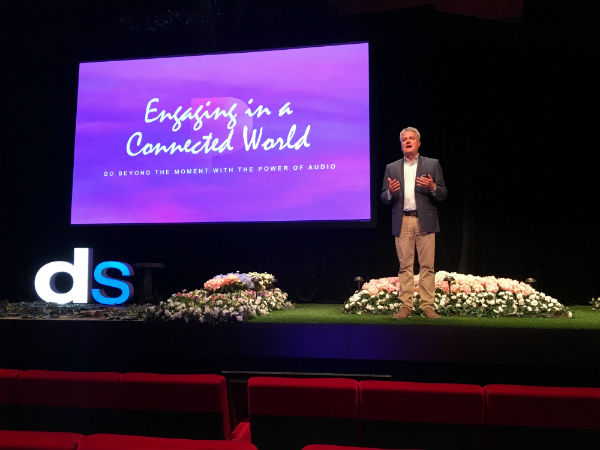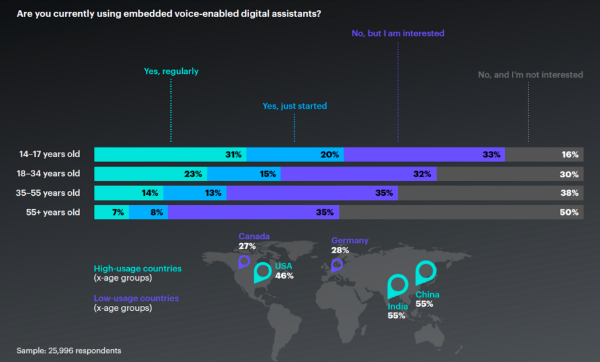
Have you ever heard a song in the morning, only to have it stubbornly stick in your head all day long, even though you don’t care for it?
Of course you have. It happens to all of us, and there’s a clear explanation for it.
“People remember things via audio signal better, longer, and stronger than when they see visually,” said Gabe Tartaglia in his presentation at Digital Summit Minneapolis: Engaging in a Connected World with the Power of Audio.
The field of neuroscience is increasingly measuring and shedding light on this phenomenon. Today’s marketer needs to be paying attention.
The Screenless Revolution
In his role as Vice President of National Vertical Sales for Pandora, Tartaglia has an inherent interest in this dynamic. And here’s why he believes it matter to all of us: “We are entering the age of voice.”
To back up this suggestion, he points to research from Accenture illustrating the growing adoption of voice-enabled devices among younger demographics:

Image Source: Voicebot
The proliferation of IoT, and the advent of screenless platforms, mean people are increasingly interacting with media in non-visual ways. As you look ahead, are you mapping this into your strategies?
Speaking to Your Audience
There are a number of ways that advertisers can leverage these changing trends to better engage people, and Tartaglia called out a few.
As one example, he played a Starbucks commercial for streaming services that seamlessly dropped in user variables like time of day, weather, day of week, and location in order to create an ultra-relevant experience that resonated.
“All of a sudden that ad is speaking directly to you,” he said. “It’s almost kind of creepy, but it’s effective, because it’s customized.”
Welcome to the future.
Searching for a Voice
One other key takeaway from the evolution of media consumer habits? Voice search is becoming a force we cannot ignore.
As Search Engine Land explored recently, “the impact of voice search on B2B SEO is inevitable.” As devices like Amazon Echo and Google Home become more mainstream, and as voice-to-text tools on smartphones become more accurate, an entire generation is growing up with these routines ingrained.
Marketers should ensure they are cognizant of this new reality.
“Is there usable content in your site that search engines will actually pick up?” Tartaglia asked. “If Alexa or Siri or whatever doesn’t know how to find you because the content does not live in a voice platform, even the best brands are going to be missing out.”
There’s a piece of guidance worth getting stuck in your head.
Want More From #DSMPLS?
You can follow us on @toprank for live tweets from the conference and visit toprankblog.com for additional coverage.


